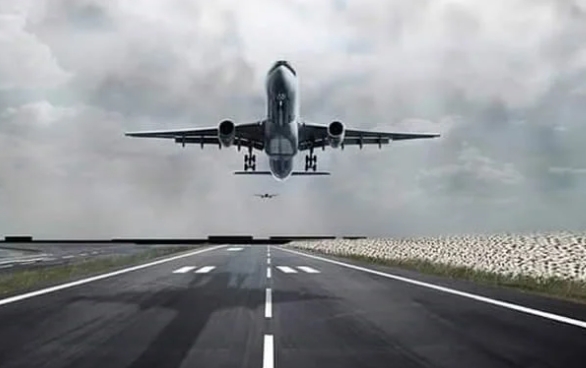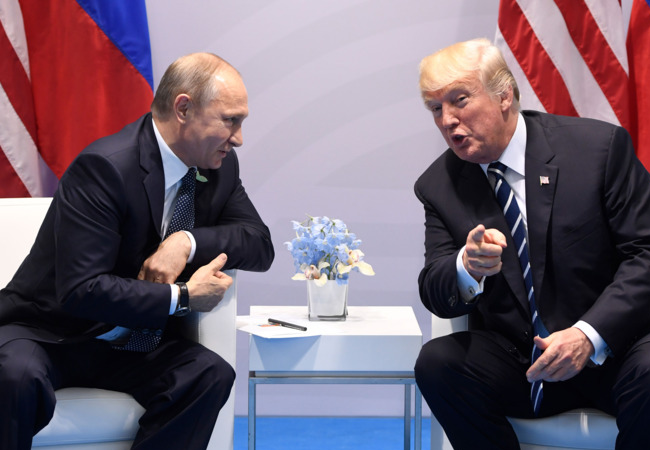Headline
Russia-Ukraine War: 15 Latest Developments As Nigeria, Ghana Evacuate Citizens

More than 660,000 people have fled Ukraine while around one million people are internally displaced, the United Nations said on Tuesday.
Of the 660,000, at least 2, 090 are Nigerians, according to Nigeria’s Federal Ministry of Foreign Affairs in a statement on Wednesday.
Nigeria also announced that some of its stranded citizens following the Russian invasion would arrive in the country on Thursday via Max Air.
Seventeen of the 500 Ghanaian students expected to be evacuated from Ukraine arrived home on Tuesday.
Nigeria’s minister of foreign affairs, Geoffrey Onyeama, said about 5,600 Nigerian students are in Ukraine and maybe a total of 8,000 Nigerian citizens in the country.
Here are the latest developments in Russia’s war in Ukraine:
– Kharkiv fighting –
Russian paratroopers land in Ukraine’s second city amid heavy fighting. Ukrainian officials say a hospital has been attacked and the barracks of a flight school is on fire after an air strike.
“There are practically no areas left in Kharkiv where an artillery shell has not yet hit,” says Interior Minister official Anton Gerashchenko.
– Biden brands Putin ‘dictator’ –
US President Joe Biden brands Vladimir Putin a “dictator” in his annual State of the Union address as he bans Russian aircraft from US airspace with Moscow facing economic and diplomatic isolation.
READ ALSO: Ukraine: Abramovich May Sell Chelsea, Three Bidders Ready -Report
– Cities pummelled –
Russia steps up its bombing campaign and missile strikes, hitting Kyiv’s main television tower, two residential buildings in a town west of the city and the city of Bila Tserkva to the south of the capital.
– Kherson: Russia inside city –
Russian forces push into the besieged Black Sea city of Kherson in the south. Its port and railway station are now in Russian hands, its mayor says.
– Mariupol without power –
Russian attacks leave Mariupol, another Black Sea port further to the west without electricity.
– Civilians flee –
More than 677,000 people have fled Ukraine since the Russian invasion, the UN’s refugee agency says, with the number rising rapidly.
– UN court to hold war hearings –
The UN’s International Court of Justice says it will hold public hearings on March 7 and 8 over Ukraine’s allegations of “genocide” by Russia as the General Assembly votes on whether to order Russia to withdraw its troops.
– Independent media blocked –
Russia blocks an independent television channel and a liberal radio station, tightening a virtual media blackout on news of the war.
– Companies exit Russia –
A string of Western companies announce they are freezing or scaling back business with Russia, including Apple, three of the world’s largest shipping companies and energy firms Eni, ExxonMobil and Boeing.
– Race for cash –
Russians race to withdraw cash after the introduction of capital controls and as the ruble hovers around record lows against the dollar.
READ ALSO: Five Killed In Russian Strike On Kyiv TV Tower
-Nord Stream 2 goes under –
Russian-owned Nord Stream 2 goes insolvent after Germany halts the gas pipeline following Moscow’s invasion. The European subsidiary of Russia’s Sberbank also prepares to enter insolvency.
– Oil price soars –Oil prices soar past $110 a barrel, despite the International Energy Agency members agreeing to release 60 million barrels from stockpiles.
– World Bank aid –
The World Bank prepares a $3-billion aid package for Ukraine, including at least $350 million in immediate funds.
PUNCH.
Headline
UK Supported US Mission To Seize Russian-flagged Oil Tanker – Defense Ministry

The British Ministry of Defence said on Wednesday that it provided support to the United States in its operation to seize a Russian-flagged oil tanker in the North Atlantic.
US seized the tanker, which was being shadowed by a Russian submarine on Wednesday, after pursuing it for more than two weeks across the Atlantic as part of Washington’s efforts to block Venezuelan oil exports.
According to Britain, its armed forces gave pre-planned operational support, including basing following a US request for assistance.
READ ALSO:UK Introduces Powers To Seize Phones, SIM Cards From Illegal Migrants
The UK also said a military vessel provided support for the US forces pursuing the tanker, and the Royal Air Force provided surveillance support from the air.
Defence Secretary John Healey stated that the operation targeted a vessel with a nefarious history linked to Russian and Iranian sanctions evasion networks.
“This action formed part of global efforts to crack down on sanctions busting,” he said in a statement.
READ ALSO:Venezuelan Deportees: US Embassy Gives Reason For Reducing Visa Validity For Nigerians
According to him, the US was Britain’s closest defence and security partner.
“The depth of our defence relationship with the US is an essential part of our security, and today’s seamlessly executed operation shows just how well this works in practice,” he added.
The British government said that the Bella-1 tanker, now renamed Marinera, is sanctioned by the US under its counter-Iran sanctions,
The MoD statement said the support was provided in full compliance with international law.
Headline
Russia Deploys Navy To Guard Venezuelan Oil Tanker Chased By US In Atlantic

Russia has deployed naval assets to escort a sanctioned oil tanker across the Atlantic following reported moves by the United States to seize the vessel.
US forces were said to be preparing to board the ship, which has a history of transporting Venezuelan crude oil and was last believed to be sailing between Scotland and Iceland.
CBS News reported that Russia stepped in to protect the tanker, raising the prospect of a direct confrontation between the two powers at sea.
READ ALSO:Russia Calls up 135,000 Military Personnel
By sending naval ships into the North Atlantic, Russian President Vladimir Putin is signalling to United States President Donald Trump that any US action would carry consequences, coming after the US president threatened that he might use the military to seize Greenland.
The tanker, currently empty, previously operated under the name Bella 1. Last month, the US Coast Guard attempted to board it in the Caribbean with a warrant over alleged breaches of US sanctions and claims that it had shipped Iranian oil.
The vessel later changed course, renamed itself Marinera and reportedly reflagged from Guyana to Russia.
READ ALSO:Venezuela Frees Eight Opposition Leaders
Trump last month said he had ordered a ‘blockade’ of sanctioned oil tankers entering and leaving Venezuela, a policy the government in Caracas branded ‘theft’.
Ahead of the US seizure of ousted Venezuelan leader Nicolás Maduro on Saturday, Trump accused the country’s government of using ships to smuggle drugs into the United States.
Two US officials told CBS News on Tuesday that American forces were planning to board the Marinera, adding that Washington would prefer to seize the tanker rather than sink it.
Russia’s Foreign Ministry said it expects Western countries to respect principles of freedom of navigation.
(Daily Mail News)
Headline
UK Introduces Powers To Seize Phones, SIM Cards From Illegal Migrants

The United Kingdom has rolled out expanded enforcement powers allowing authorities to confiscate mobile phones and SIM cards from migrants who enter the country illegally.
The new measures, which do not require an arrest, came into force on Monday at the Manston migrant processing centre in Kent and represent a significant tightening of border controls.
According to the Home Office, the powers are intended to support intelligence-gathering operations aimed at disrupting criminal networks that organise and profit from dangerous Channel crossings.
Officials at the centre are equipped with technology that enables them to extract and analyse data from seized devices, a move the government says will help track and dismantle smuggling rings.
READ ALSO:Russia-Ukraine War: Pope Leo Calls For Global Christmas Truce
Under the revised rules, migrants are permitted to be asked to remove outer garments if there is suspicion that phones are being concealed.
In certain circumstances, officers may also check mouths for hidden SIM cards or small electronic items.
The National Crime Agency said information recovered from devices could accelerate investigations and improve the effectiveness of action against organised crime groups.
Border Security Minister Alex Norris said the policy was necessary to regain control of the UK’s borders and confront human trafficking operations.
“We are committed to restoring order and tackling the people-smuggling gangs behind this lethal trade,” Norris said.
READ ALSO:
“These stronger laws give authorities the tools to disrupt, intercept and dismantle these networks more quickly and effectively,” he added.
The legislation also introduces tougher criminal penalties linked to illegal crossings.
Individuals found storing or supplying boat engines for unauthorised journeys could face prison terms of up to 14 years, while those involved in researching equipment or plotting routes may be liable to sentences of up to five years.
Government officials stressed that the powers would be exercised with discretion.
READ ALSO:UK Unveils Record-breaking Bid For 2035 Women’s World Cup
The Minister for Migration and Citizenship, Mike Tapp, said devices could be returned depending on individual circumstances and the relevance of the information obtained.
“If a device may contain intelligence that helps combat smuggling, it is right that it can be seized,” Tapp said, adding that the approach would not undermine compassion toward migrants.
However, humanitarian organisations have expressed unease about the impact of the policy.
The Refugee Council warned that mobile phones often serve as vital lifelines for migrants, enabling contact with family members and access to support services, and urged authorities to ensure the measures are applied in a proportionate and humane manner.

 News3 days ago
News3 days agoWhat I Saw After A Lady Undressed Herself — Pastor Adeboye

 Headline3 days ago
Headline3 days agoPROPHECY: Primate Ayodele Reveals Trump’s Plot Against Tinubu

 Metro3 days ago
Metro3 days agoArmed Robbers Shot PoS Operator To Death In Edo

 Metro2 days ago
Metro2 days agoAAU Disowns Students Over Protest

 Metro2 days ago
Metro2 days agoNine Soldiers Feared Dead In Borno IED Explosion

 Metro3 days ago
Metro3 days agoJoint Task Force Kills 23 Bandits Fleeing Kano After Attacks

 Politics3 days ago
Politics3 days ago2027: Rivers APC Pledges To Follow Wike’s Instructions

 Metro2 days ago
Metro2 days agoEdo: Suspected Kidnappers Kill Victim, Hold On To Elder Brother

 Metro3 days ago
Metro3 days agoGunmen Demand N200m Ransom For Kidnapped Brothers In Edo

 Business2 days ago
Business2 days agoNNPCL Reduces Fuel Price Again




























